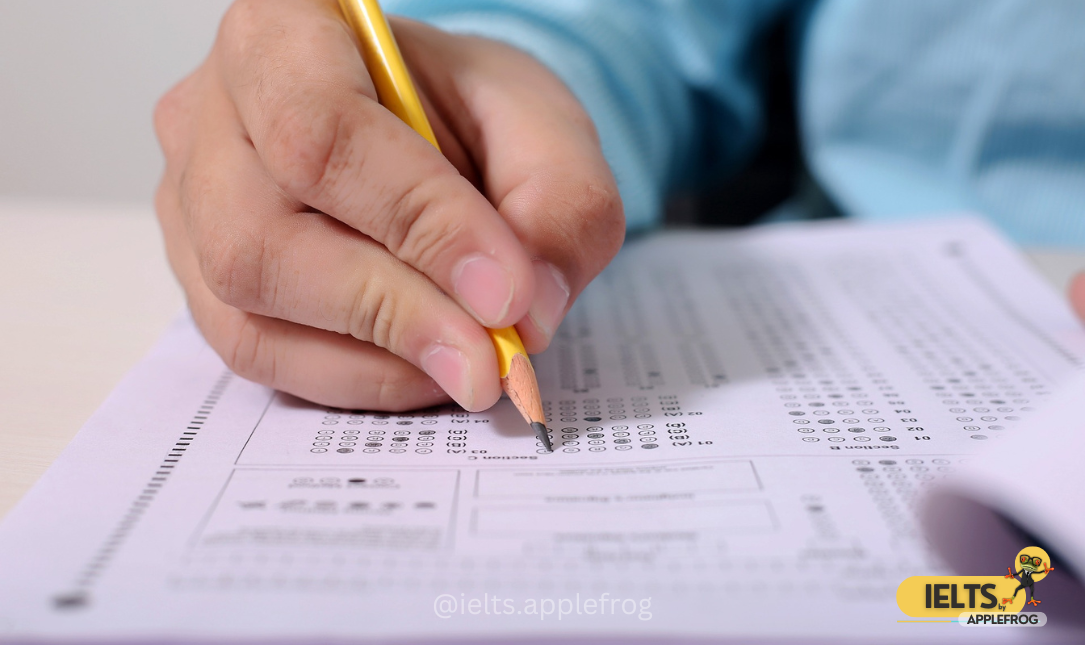
- Pay Attention to Spelling
- Use Exact Words and Numbers
- Follow the Word/Number Limit
- Understand Word Limit Flexibility
- Expect Paraphrased Questions
- Follow the Order of the Recording
- Use Guide Words for Navigation
- Don’t Dwell on Missed Answers
- Guess Missing Answers
- Predict Missing Words Using Context
- Extra Tip: Practice and Review
Scoring well on the IELTS Listening test requires effective strategies and preparation. These 10 tips will guide you to improve your performance and achieve the score you need.
Success in IELTS Listening is not about hearing but understanding and applying. Practice sharpens your skill, and focus leads you to your goal.
1. Pay Attention to Spelling
Correct spelling is crucial. Even if your answer is correct, a spelling mistake will cost you marks. For example, if the recording states “building” but you write “bilding,” your answer will be marked incorrect.
2. Use Exact Words and Numbers from the Recording
Your answer must match the words or numbers spoken in the recording. There’s no room for paraphrasing or altering the form of a word. For example, if “manage” is the answer, writing “manages” or “managing” would be incorrect.
3. Follow the Word/Number Limit in the Question
Adhere strictly to the word or number limit mentioned in the instructions. If the question specifies “one word only,” provide just one word. Exceeding the limit will result in a wrong answer.
Note: Hyphenated words, like “old-fashioned,” are considered one word.
4. Understand the Word Limit Flexibility
If the limit allows up to three words, you can write one, two, or three words, but no more. Stay within the specified range.
5. Expect Paraphrased Questions
The phrasing in the question paper might differ from what you hear in the recording, but the meaning will remain the same. However, the exact words you need to fill in the blanks will always match the recording.
6. Follow the Order of the Recording
The questions will appear in the same sequence as the recording. For multiple-choice questions, note that the answer options may not follow the order of the recording, so listen carefully.
7. Use Guide Words for Navigation
Look for headings or key phrases in the question paper to help you track the recording’s progress. These guide words can prevent you from getting lost during the test.
8. Don’t Dwell on Missed Answers
If you miss an answer, move on quickly to avoid losing more time. Use the next guide words in the recording to regain your place.
9. Guess Any Missing Answers at the End
At the end of the test, review unanswered questions and make an educated guess. You won’t lose marks for incorrect answers, and there’s always a chance your guess could be right.
10. Predict Missing Words Using Context
The context around a blank in the question paper can provide clues about the type of word needed. For instance, an article like “a,” “an,” or “the” suggests a noun; the overall topic may hint at what the noun might be; a blank near a verb could indicate an adverb.
Extra Tip: Practice and Review
Regular practice with sample tests and reviewing your mistakes can significantly improve your listening skills and test performance. Time yourself during practice sessions, and analyze why certain answers were missed to refine your approach.
By following these tips and practicing regularly, you’ll be better prepared to excel in the IELTS Listening test. Good luck!












 Here can be your custom HTML or Shortcode
Here can be your custom HTML or Shortcode
0 Comments